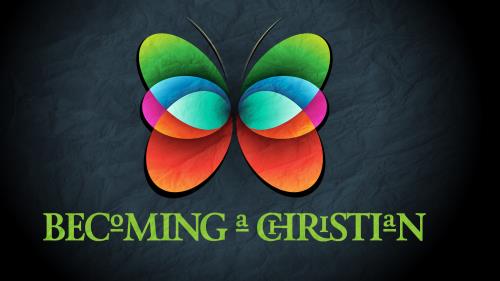-
The Always Appropriate Prayer Series
Contributed by Chris Appleby on Nov 28, 2017 (message contributor)
Summary: Sin is our greatest problem as human beings. Only confessing our sin to God and asking for forgiveness will help us.
What is the greatest problem we face as human beings today? Greenhouse gases and climate change? Terrorism? Civil wars? Overpopulation? The ever-increasing gap between rich and poor? The world-wide epidemic of HIV/AIDS? On a more personal level, perhaps it’s the breakdown in relationships between people, between racial and cultural groups, within families, even?
All of those problems are significant dangers for us in 2006 but I want to suggest to you today that we have a far more pressing problem: one that most people are either unaware of or in denial about. That’s the problem of our own inherent sinfulness; of our innate rebellion against the God who made us and who deserves our obedience. Why is this our greatest problem as human beings? Because, as we read in Acts 17:31 "God has set a day when he will judge the world in righteousness." And if we haven’t dealt with our sinfulness by then we’re in big trouble.
So how do you deal with your sin, with your failure to do what’s right? Think about times you’ve done something that you knew was wrong. Perhaps it was something that caused pain or loss to someone else. Perhaps it was something that you’d be ashamed to admit to those sitting around you today. How did you deal with it? Well, it seems to me there are 3 basic ways we tend to deal with our sins.
A) Denial
The first way we deal with it is by denial. We can deny it to ourselves; just wipe it out of our memory banks; try to forget it happened; hope it’ll just go away. Or if someone accuses us of doing something wrong we simply deny any knowledge of it. "I never saw the man before in my life!" In political circles this is known as "Plausible deniability". That’s when you have some built in escape route. You may have noticed it in action during the AWB enquiry recently with all those cables that never seem to have been read by the relevant ministers.
Of course the danger with that course of action is that when we deny what we’ve done we begin a process of lies that tend to get bigger the further we go. But then, God warns us in Numbers 32:23 "be sure your sin will find you out."
B) Blaming others
So the second approach we sometimes take is to blame others. This of course was the first defence ever used by humans when confronted with their own rebellion against God. Adam blamed the woman that God had given him. So it was either Eve’s fault or perhaps even God’s. Eve in turn blamed the serpent. And of course "The devil made me" has been a regular catch cry ever since. But again, blaming others just compounds the sin, doesn’t it? All that does is to break down the relationship we have with that third person. But it doesn’t actually take away our own responsibility for our actions.
C) Confessing and asking forgiveness.
The third approach is by far the best. As we’ll see in a moment, it both acknowledges our own responsibility and it provides the way forward to reconciliation and restoration of the broken relationship. Today I want us to look at Psalm 51. This is a psalm written by David after he’d committed adultery with Bathsheba and had then arranged to have her husband, Uriah, killed in battle. So let’s look at the elements of David’s prayer as we read through it.
1 A cry for mercy vs1,2
He begins by crying out to God for mercy, acknowledging, as he does, the nature of God. Notice the characteristics he ascribes to God: mercy, steadfast love, mercy. The grounds of his appeal are the attributes that make God willing to forgive even a terrible sin like David’s. He doesn’t appeal to his own general good behaviour. He doesn’t remind God what a good king he’s been. He doesn’t mention that he’s a man after God’s own heart. Why? Because he understands the reality of his own sinful nature.
So what does he do? He asks God to blot out his transgressions, wash away his iniquity, cleanse him from his sin. He knows there’s nothing he can do to right the wrong, so he pleads with God to make it right, to wash him clean, to restore the relationship. Only God is able to restore the relationship with him that we’ve broken; only God can fix the insurmountable problem that human beings face. But notice the first step for us in getting to that point.
2 Acknowledging my sin, vs 3, 5 & 17
He acknowledges his sin, his own culpability in what he’s done. There’s no room for denial or shifting of blame here. He says "I know my transgressions, and my sin is ever before me." He acknowledges that this is a problem he can’t overcome by himself, v5: "Indeed, I was born guilty, a sinner when my mother conceived me." We suffer from an inborn inability to do what’s right consistently. All we can do is to admit our fallen nature and plead to God for help. Later on he recognises that it isn’t burnt offerings that God desires from us but a broken and contrite heart; admitting our sinfulness and turning away from it.

 Sermon Central
Sermon Central



